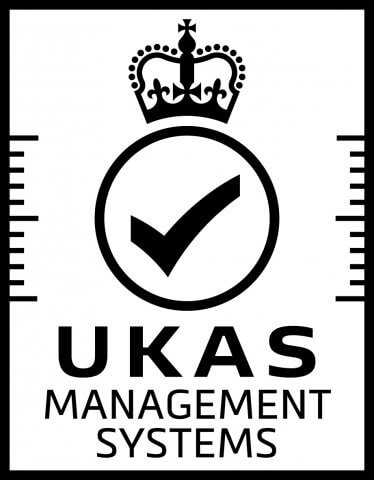Can I breastfeed after a breast reduction? it’s a question so many women ask. Because yes, smaller, lighter breasts can change your comfort and confidence but motherhood often brings different priorities. Feeding your baby is one of them.
The truth? Breastfeeding after breast reduction is possible but it’s not always easy. Some women have no problems at all while others find their supply limited or need extra support.
This guide is here to walk you through it including how milk is made, how surgery can affect things, and what you can do to give yourself the best chance. Think of it as honest advice from people who’ve been there, mixed with expert guidance you can trust.
How Is Breast Milk Produced?
To understand how breast reduction can affect breastfeeding, it helps to first look at how breast milk is naturally produced in a woman’s body.
Breast milk is made by tiny glands inside the breast called lobules. These glands release milk into ducts, which carry it to the nipple when your baby feeds. Hormones, mainly prolactin and oxytocin, control this process.
In simple words, healthy glands, clear milk ducts, and a responsive hormone system all work together to make breastfeeding possible. If surgery affects any of these parts, milk supply may be reduced.
Auralia Surgeon Tip:
“Think of milk production as a chain. If one link is disrupted, breastfeeding can become more challenging.”
How Does Breast Reduction Affect Breastfeeding?
This is the question that worries most women and the answer isn’t the same for everyone. The impact depends on how the surgery was performed, how your body heals, and even how your breasts respond during pregnancy.
Here’s what really matters:
- Milk ducts and glands
These are the pathways that produce and deliver milk. If too many are cut, removed, or disconnected during surgery, milk supply may be lower. Some ducts can reconnect over time, but not always. - Nerves around the nipple
Nerves trigger the reflex that tells your body to release milk. If they’re damaged, your let-down reflex may not work properly, making breastfeeding harder. - Blood supply
Healthy circulation is vital for milk production. Techniques that preserve blood vessels give a better chance of normal breastfeeding later. - Surgical technique
Not all breast reductions are the same. The technique chosen by your surgeon is crucial and depends on your individual anatomy and goals. If the nipple stays attached to underlying tissue and nerves (a pedicle technique), the chances of preserving the ability to breastfeed are much higher. However, in cases involving very significant reduction or specific medical reasons for a breast reduction, a technique that involves fully removing and grafting the nipple (free nipple graft) may be recommended, which makes breastfeeding unlikely. - Time since surgery
The body can heal and adapt. Women who had breast reduction many years before pregnancy sometimes find their milk supply is better than expected, thanks to natural regrowth of ducts and nerves.
The reality? Some women go on to breastfeed fully, some partially, and some not at all. Many mothers use a combination of breastfeeding, pumping, and supplementing with formula and that’s completely valid. What matters most is that your baby is fed and in good health.
Auralia Surgeon Tip:
“How your surgery was performed plays a big role in your chances of breastfeeding. Always tell your surgeon if breastfeeding is important to you, so the technique can be tailored.”
Why Healing Time Matters for Breastfeeding After Breast Reduction
If you’ve had breast reduction and want to breastfeed later, timing can make a difference. Your body needs space to heal and, in some cases, reconnect milk ducts and nerves.
Some studies suggest that the longer the gap between your breast reduction and pregnancy, the better your chances of producing milk. Why? Because the body has an incredible ability to heal, and some ducts and nerves may regenerate over time.
It’s also important to remember that your breasts naturally change during pregnancy. Hormones stimulate the milk glands and can sometimes “wake up” ducts that were affected by surgery. So even if supply isn’t perfect, your body may surprise you.
In short, if you’re planning a family, talk openly with your surgeon before your procedure. And if you’ve already had surgery, know that waiting for complete healing before pregnancy gives you the best chance to breastfeed.
Tips For Breastfeeding After Breast Reduction
Breastfeeding after breast reduction can be challenging but it’s not impossible. Many mothers succeed by using the right strategies and support.
Here are some tips that can make your breastfeeding journey easier:
- Work with a lactation consultant early: Don’t wait until after birth. Meeting with one during pregnancy helps you prepare and set realistic expectations.
- Feed frequently: The more often your baby nurses, the more signals your body gets to produce milk.
- Try pumping: Using a breast pump after feeds can help stimulate extra milk production.
- Use skin-to-skin contact: Holding your baby close encourages bonding and can trigger the let-down reflex.
- Consider supplementation if needed: If your supply isn’t enough, combining breastfeeding with expressed milk or formula still gives your baby the best of both worlds.
- Stay patient and kind to yourself: Breastfeeding is different for everyone, and “success” doesn’t always mean exclusive feeding.
Frequently Asked Questions (FAQs)
It can be more challenging, but many women successfully breastfeed after surgery. The key factor is the surgical technique used. If your surgeon uses a method that keeps the nipple connected to the underlying tissue (a pedicle technique), the milk ducts and nerves have a much better chance of remaining functional. While milk production might be lower, many women can breastfeed exclusively or supplement with formula.
Absolutely. Procedures that keep the nipple attached to breast tissue (pedicle technique) usually preserve more function. Surgeries where the nipple was completely removed and reattached (free nipple graft) often make breastfeeding very difficult.
Yes. If your breasts don’t grow or feel fuller during pregnancy, or if you notice very little milk coming in after delivery, it may mean your supply is limited. A lactation consultant can guide you on what to do next.
You can have a perfectly healthy pregnancy after a breast reduction. Your breasts may undergo normal changes in size and sensitivity during pregnancy. When it comes to feeding, you will likely be able to produce milk, but the amount can vary. We encourage you to work with a lactation consultant who can help you establish a good milk supply and determine if supplementation is needed to ensure your baby is well-fed.
During the procedure, some milk ducts and glandular tissue are inevitably removed to reduce breast volume. However, a skilled surgeon using modern techniques will aim to preserve as much of the functional breast tissue and connecting ducts as possible.
This is a common and valid concern. First, know that your ability to nourish and bond with your baby is not defined by breastfeeding. If you find your milk supply is insufficient, you are not alone. Many mothers use formula, either exclusively or to supplement what they can produce. It’s important to discuss this possibility with your partner and your healthcare team beforehand, so you feel supported in whatever feeding journey works for your family.
Finding Your Path Forward
If you’re thinking about breast reduction whether for comfort, confidence, or health, our team at Auralia is here to guide you. From your very first consultation, we’ll talk through your goals, your concerns, and yes, even your hopes for future breastfeeding.
Ready to take the next step? Book your free consultation today and discover if breast reduction is right for you.






